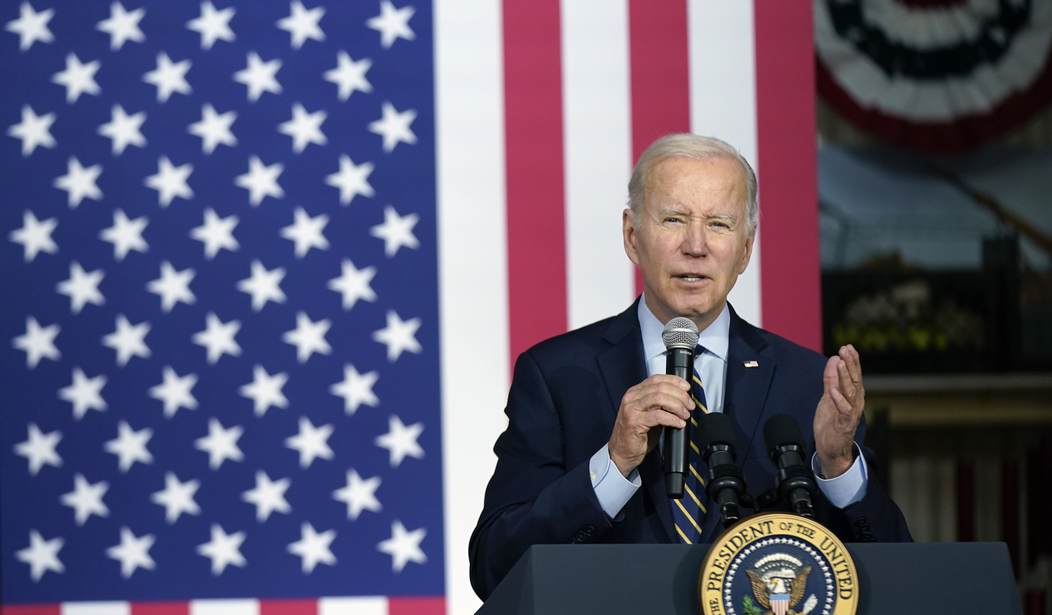In the midst of electric vehicle mandates and increased concerns about overreliance on China for critical mineral supply chains, the Biden Administration continues to make some dubious decisions. Enter the once-highly respected space agency.
In NASA’s quest to develop a satellite calibration site, it landed on an area on top of lithium deposits in Nevada – and squarely in the way of President Biden’s own environmental goals.
Since the Functional Government Initiative (FGI) received documents showing discussions at the Department of the Interior about NASA’s application that would hobble mining of lithium for a satellite calibration site, we have been curious. Did they have to use the land rich in minerals for that site? A study NASA cited in its application to withdraw land in the Railroad Valley area in Nye County, Nevada, noted other sites that could be acceptable for satellite calibration, including an existing calibration site in an area with federal land ownership where development was already limited. Yet, NASA focused on the site with lithium, a mineral vital to battery technology for electric vehicles (EVs).
On April 27, 2023, the Bureau of Land Management, part of the Department of the Interior, approved NASA’s application, essentially putting nearly 23,000 acres of land off limits for new lithium and other mining claims for 20 years. Ironically, satellites NASA needs to calibrate will monitor the very greenhouse gas emissions that EVs would supposedly help prevent. Such logic is nothing new for the Biden Administration, which has blocked project after project that could help reduce dependence on China and other foreign adversaries.
Recommended
A January 2023 U.S. Geological Survey report found there are 98 million tons of identified lithium resources in the world, with only 12 million located in the United States. This March, a geological team from 3 Proton Lithium Inc., a Nevada company with mining rights at the site, confirmed that the area contained more than 25 million tons of recoverable lithium, the largest known deposit in North America and more than double USGS’s recent estimate for the nation. Access to this lithium and other critical minerals found in the area by 3PL could go a long way toward the goal of U.S. independence for critical minerals.
Unfortunately, this action appears to be yet another example of the hypocrisy of the Biden administration when it comes to minerals necessary for EVs and energy policy in general. As they call for Americans to abandon gas-powered vehicles in favor of EVs, they concurrently make domestic mining more difficult or even impossible. Each EV battery requires more than 12 pounds of lithium, along with several other minerals. Putting domestic mines off-limits will make already-expensive EVs vehicles even more costly.
It will also leave the domestic industry at the mercy of turbulent geopolitical relations. The United States currently has only one operating lithium mine, accounting for roughly one percent of global lithium production. In comparison, China controls almost two-thirds. To state the obvious, EVs can’t be built if someone doesn’t mine for the necessary minerals. There is no way around it: any transition to electric vehicles without increased access to domestic resources would increase our reliance on mineral resources under the control of the Chinese Communist Party.
Earlier this year, the Department of the Interior killed plans for the Twin Metals mine in Minnesota that could have tapped 95 percent of the nickel and 88 percent of the cobalt in the United States, other minerals critical for EVs. Meanwhile, according to other documents FGI obtained, the administration is supporting development of lithium mining in Argentina. U.S. tax dollars fund foreign projects while our critical mineral supply chain withers. The Biden administration’s “none of the above” approach to the domestic production of minerals clearly undermines its own EV policies.
If shifting to EVs is important, the administration shouldn’t pursue policies that make them more expensive. If America needs to be energy self-sufficient, the government shouldn’t be ceding dominance of the EV battery industry to China. This is a level of dysfunction that should make even the administration’s biggest renewable energy proponents concerned. Critical minerals are essential for America's future and its energy security. By supporting domestic production, the United States can take control of its own destiny and reduce its reliance on foreign countries.

























Join the conversation as a VIP Member